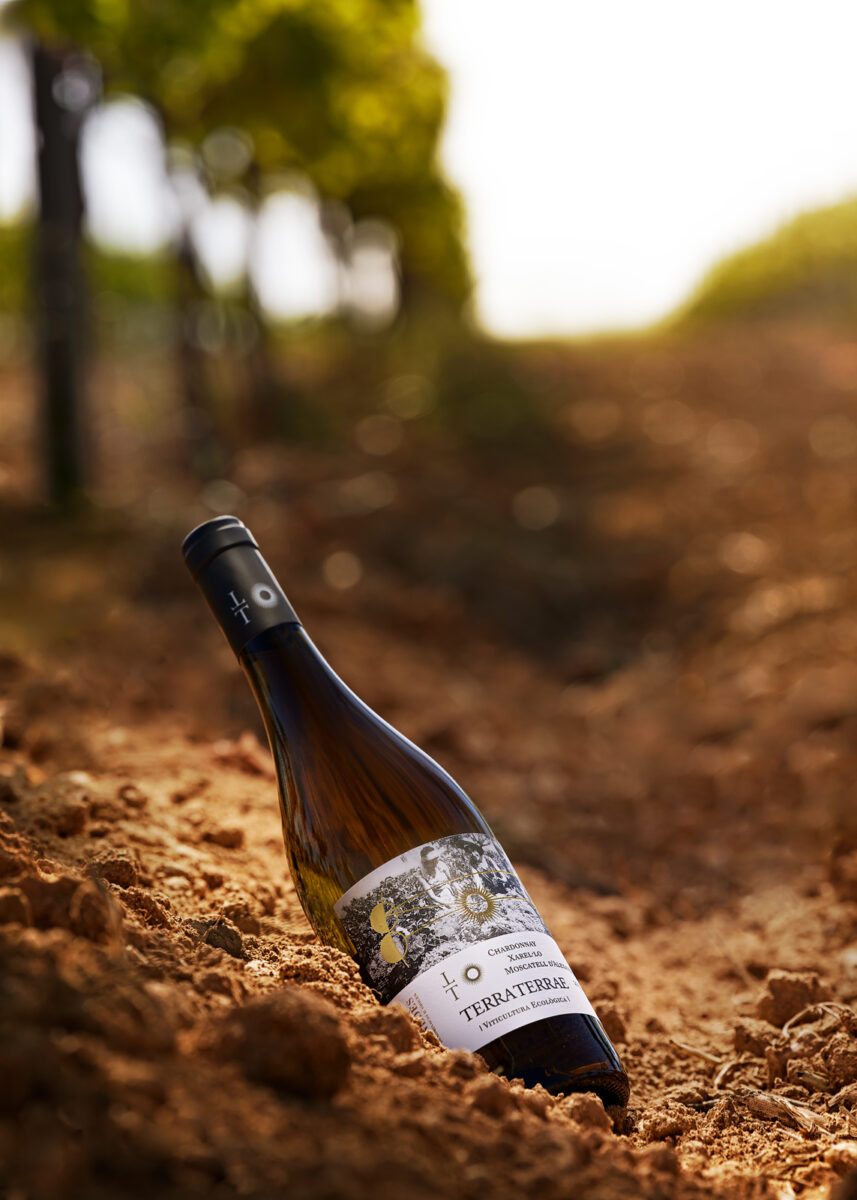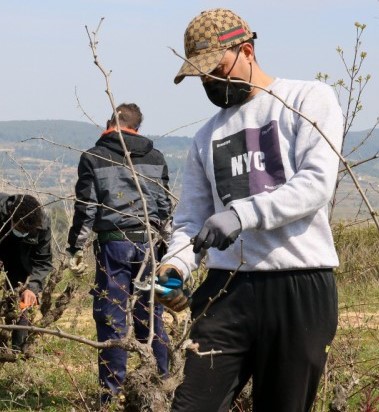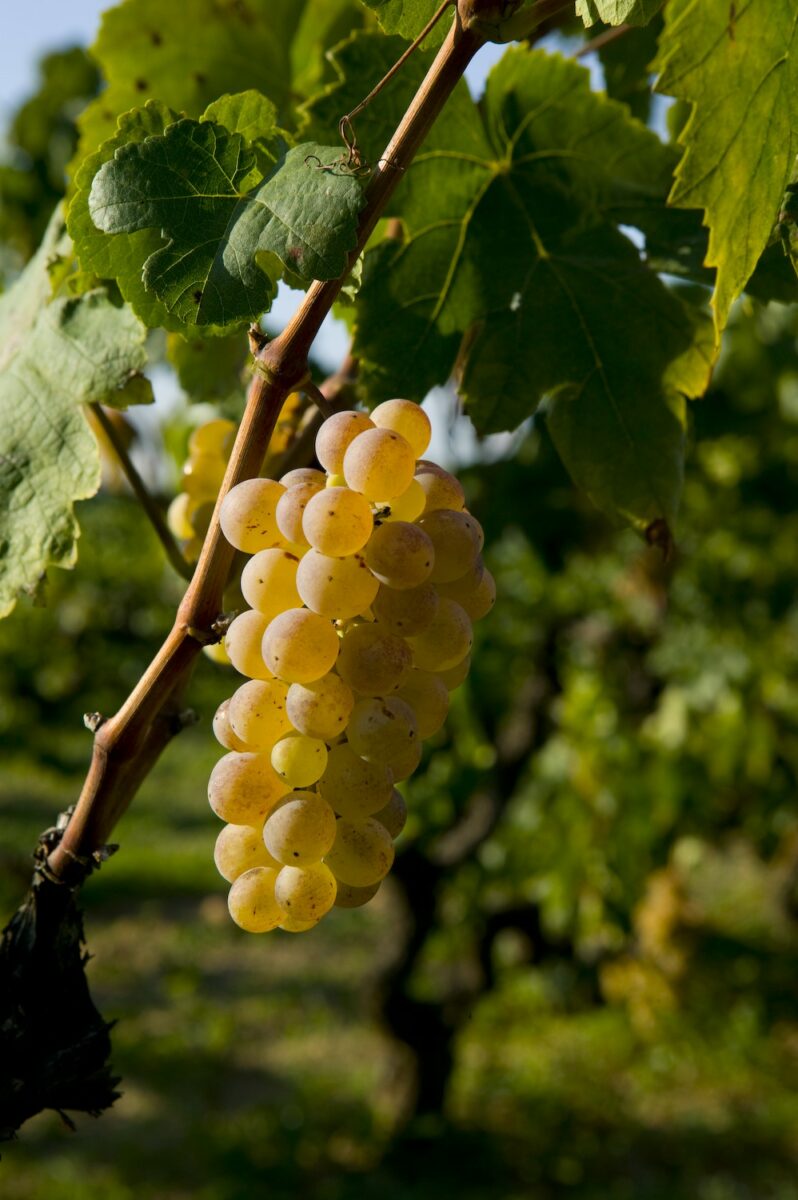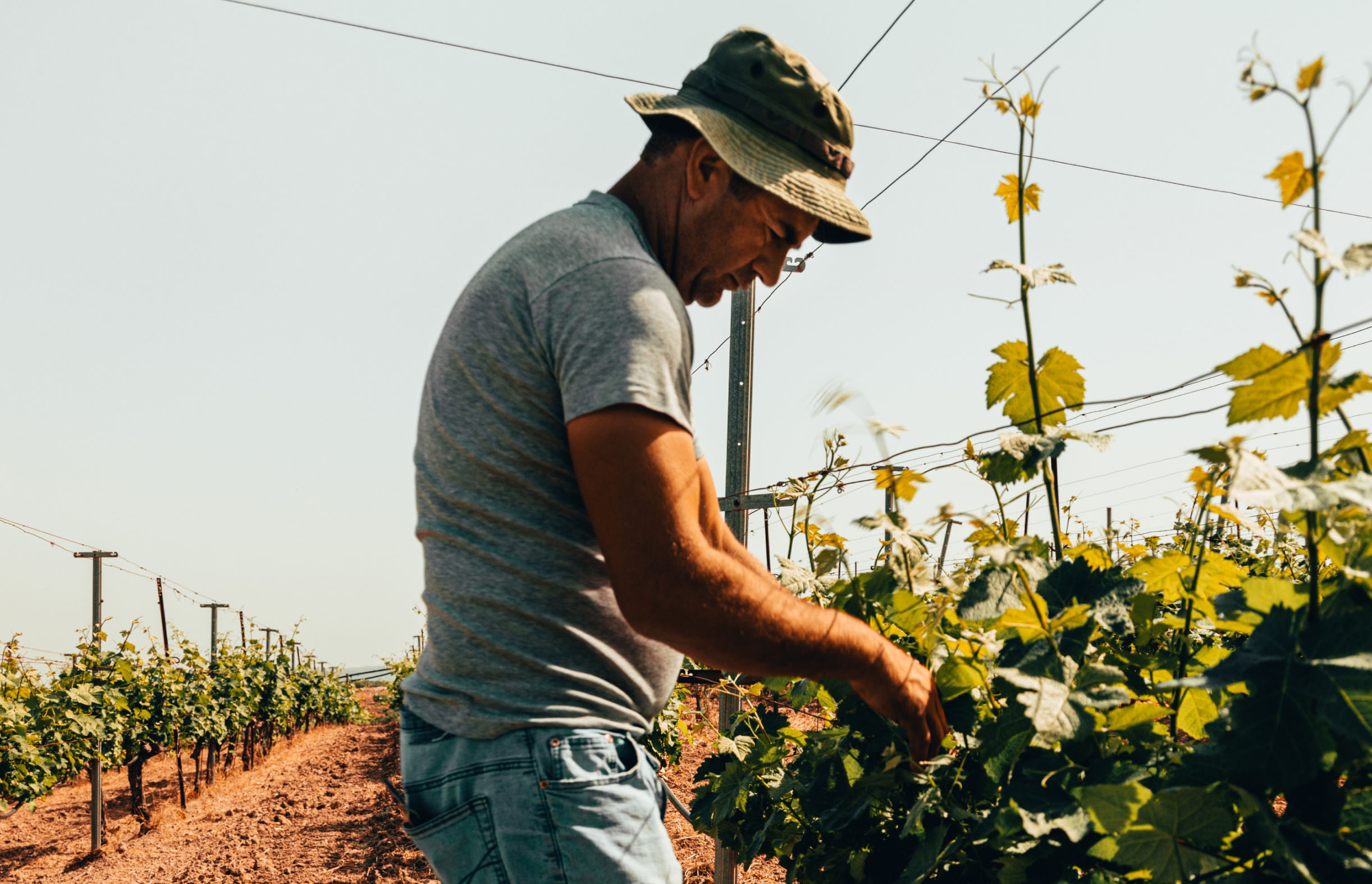
Our commitment
Since our beginnings we have been fully committed with the environment, with its protection and improvement in all areas of activity, from the vineyard to the winery.
We are aware of the impact that wine production has on the environment. Not only do we have an obligation to be environmentally sustainable, but responsible.
Our wines and cavas are the result of our environmental and social commitment; they are a clear reflection of our responsibility to preserve the planet. We want to keep our healthy land linked to a concerned community and prepare them for the future generations.

Coopera Project
Coopera is an agricultural relief project promoted by the Penedès cooperatives Covides, Entrem and Actua. It is a pioneering initiative in Catalonia that aims to provide a solution to the lack of generational replacement in the world of agriculture through the education and training of people at risk of social exclusion.
Coopera offers agricultural services of all kinds (pruning, harvesting, cleaning of plots, biomass, etc.) to farmers and farm owners by contracting people at risk of social exclusion. On the other hand, it is also responsible, on a sharecropping basis, for the direct management of farms that are at risk of being abandoned and that can continue to be productive.
The project main target is to tackle different problems related to the primary sector: ensure the replacement of the peasantry, prevent land abandonment and train and educate people at risk of social exclusion, especially unaccompanied inmigrants.

Predivi Project
The variability of the volume and quality of wine production means that the investment of resources and dedication of our technical teams to obtain harvest predictions is increasingly higher.
That is why we have created a project based on the use of Big Data technologies to develop prediction models that anticipate the information we want from our harvest.
Big Data technology allows us to combine a large volume of hyperlocalized meteorological variables (both historical and predictive), soil map studies, agronomic characteristics of our plots and combine them with historical records of production and ripening controls, among other variables, so it is feasible to create predictive models based on Machine Learning that are able to improve harvest predictions.
CER.COOP Project
Covides SCCL participates, together with CEVIPE Grupo Cooperativo SCCL, Agrícola de Falset – Marçà SCCL, BATEC SCCL and EMELCAT SCCL, in a unique project led by the Federation of Agricultural Cooperatives of Catalonia (FCAC), to study the creation and development of a Rural Energy Community (REC).
A REC is a group of energy self-consumption that allows consuming the energy generated within the municipality/company/cooperative (essentially photovoltaic), using the existing electricity grid. Its objectives are:
- To lead the ecological and energetic transition from the rural world, starting from the facilities of the cooperative and the members spread in different rural areas.
- Maximize photovoltaic energy self-sufficiency through the use of roofs owned by the cooperative and its members.
- To take advantage of and strengthen the cooperative character among the members, opening, if necessary, a new energy section.
- Diversification of business to COVIDES members, seeking maximum performance of farms.
- Search for energy and rational savings by COVIDES and its partners that is reflected in the economic result in the face of maximum energy efficiency.
- Governance mechanisms to make decisions within the energy section, providing autonomy or participation in the community.
From COVIDES, a first phase of data collection of voluntary partners from different parts of the Penedès (30 partners from 20 municipalities in total) has been formulated for the project, and its feasibility is being studied so that, in the future, it can be expanded to more partners or legal entities, whether current members of COVIDES or not, in addition to being or not being holders of a farm, making agricultural cooperatives proactive in the ecological transition to renewable energies.
This project has been funded by the Spanish Ministry of Labor and Social Economy, through the Department of Enterprise and Labor of the Generalitat de Catalunya.
CoopVitiLoop Project
Covides SCCL, together with Cevipe Cooperative Group and the Federation of Agricultural Cooperatives of Catalonia, together with the BETA Technological Centre, have initiated this project with the main objective of closing the carbon cycle in the wine sector by optimizing co-composting to sanitize and stabilize the waste and by-products obtained from the harvest, wine processing and wastewater treatment for subsequent application as biofertilizer.
From an environmental point of view, the technology wants to be designed taking into account the principles of circular economy. The environmental benefits of the application of this technology will be evaluated by means of Life Cycle Assessment (LCA) and will take into account both the impacts generated by the applied technology (residual emissions from the process) and the impacts derived from the application of the compound. In addition, the complete life cycle will be compared with different conventional livestock manure management treatments and chemical fertilization strategies.
The expected results of this project are:
- Obtaining optimal mixing ratios and optimal operating conditions that maximize efficiency and minimize gas emissions associated with different environmental loads.
- In situ treatment of the solid waste generated in a mobile pilot plant to evaluate the aerobic biodegradation process on a demonstration scale.
- To obtain a quality compound, stabilized and sanitized, with a high agronomic value following dynamics similar to those observed at pre-pilot scale.
- To know the effectiveness of fertilization with compost obtained from vineyard by-products on organic matter evolution, nutrient release and soil water retention capacity.
“Project funded through the Operation 16.01.01 of Cooperation for Innovation of the Rural Development Program of Catalonia 2014-2020.”
Link to the European Commission website dedicated to rural development.
Bioferti+ Operative Group
Covides SCCL participates, together with CEVIPE Grupo Cooperativo SCCL, Agrícola de Falset – Marçà SCCL, BATEC SCCL and EMELCAT SCCL, in a unique project led by the Federation of Agricultural Cooperatives of Catalonia (FCAC), to study the creation and development of a Rural Energy Community (REC).
A REC is a group of energy self-consumption that allows consuming the energy generated within the municipality/company/cooperative (essentially photovoltaic), using the existing electricity grid. Its objectives are:
- To lead the ecological and energetic transition from the rural world, starting from the facilities of the cooperative and the members spread in different rural areas.
- Maximize photovoltaic energy self-sufficiency through the use of roofs owned by the cooperative and its members.
- To take advantage of and strengthen the cooperative character among the members, opening, if necessary, a new energy section.
- Diversification of business to COVIDES members, seeking maximum performance of farms.
- Search for energy and rational savings by COVIDES and its partners that is reflected in the economic result in the face of maximum energy efficiency.
- Governance mechanisms to make decisions within the energy section, providing autonomy or participation in the community.
From COVIDES, a first phase of data collection of voluntary partners from different parts of the Penedès (30 partners from 20 municipalities in total) has been formulated for the project, and its feasibility is being studied so that, in the future, it can be expanded to more partners or legal entities, whether current members of COVIDES or not, in addition to being or not being holders of a farm, making agricultural cooperatives proactive in the ecological transition to renewable energies.
This project has been funded by the Spanish Ministry of Labor and Social Economy, through the Department of Enterprise and Labor of the Generalitat de Catalunya.
VIPO Project: Training tool based on virtual reality
Aim of the project
The VIPO project aims to achieve a virtual training environment with functional and representative pruning practice scenarios, which facilitates the qualification of labor for carrying out tasks in the vineyard.
Our cooperative participates in the second phase of this project in which we will continue researching to improve the training platform obtained in Phase 1 at the level of content by implementing Augmented Reality with the intention of achieving an innovative channel that promotes continuous training. We are working to generate and include more representative and realistic scenarios that simulate more complex situations in the vineyard through the development of a predictive model. The expected results of this project are to achieve a training methodology that allows the acquisition of knowledge about pruning in a non-seasonal way, thanks to Virtual Reality, and without interfering with the real environment.
Participants of the second phase of the project is being carried out thanks to the collaboration of:
- INNOVI Cluster (project coordinator).
- Food Industry Association of Castilla y León, VITARTIS
- Eurecat Foundation
- Adecco
- Vitivin
- Covides
- Cuatrorayas Winery

